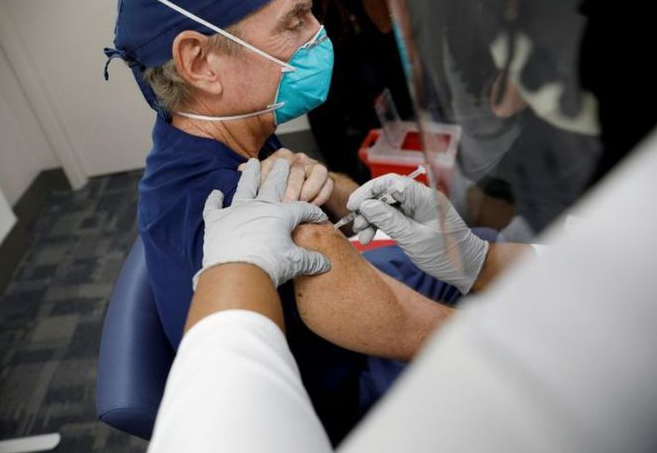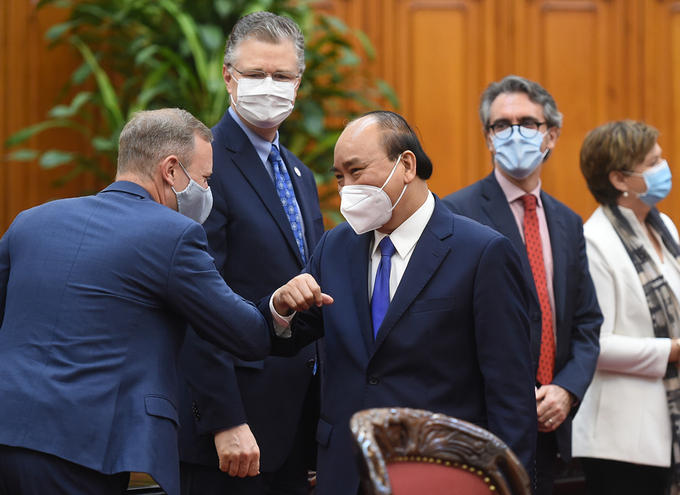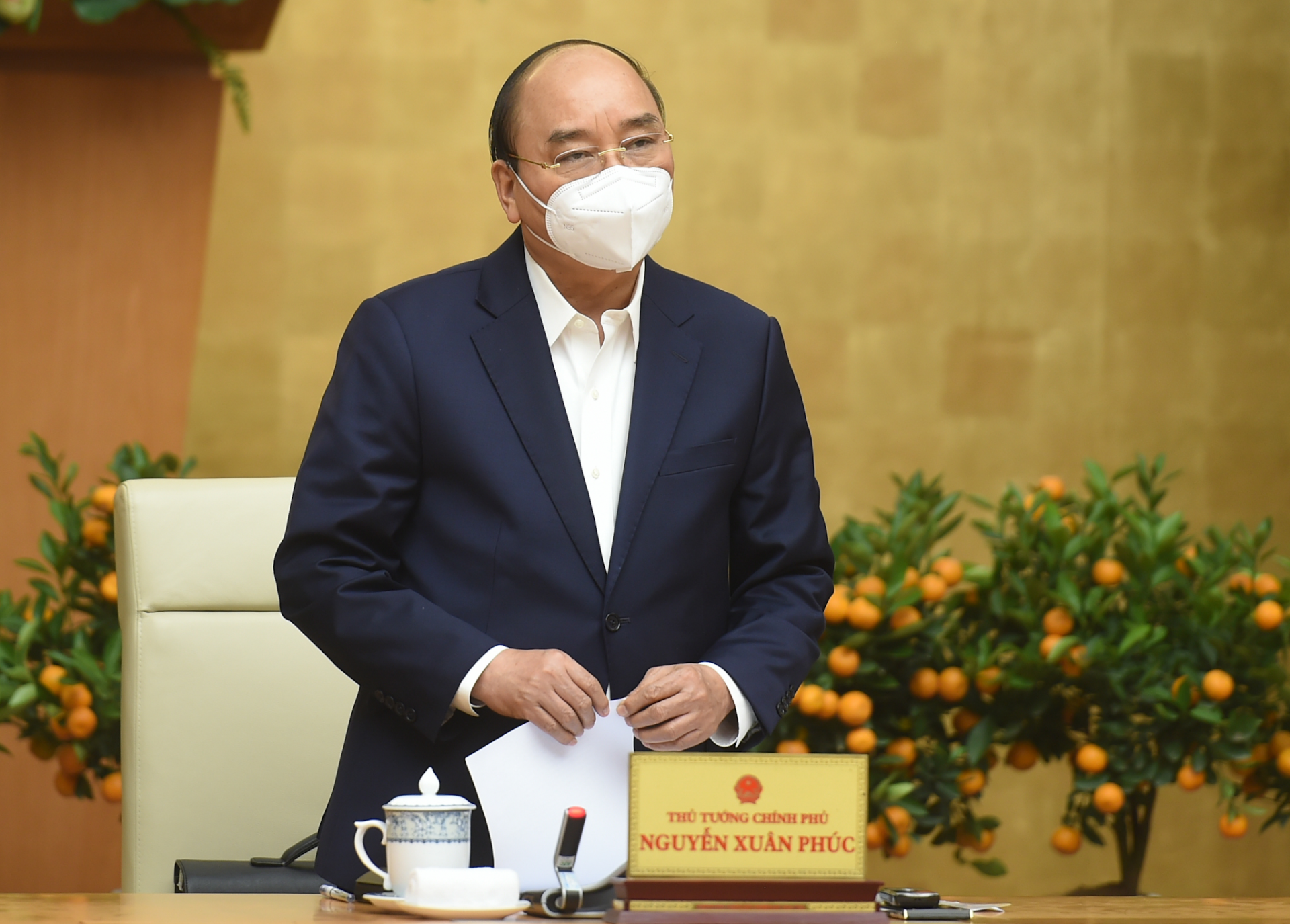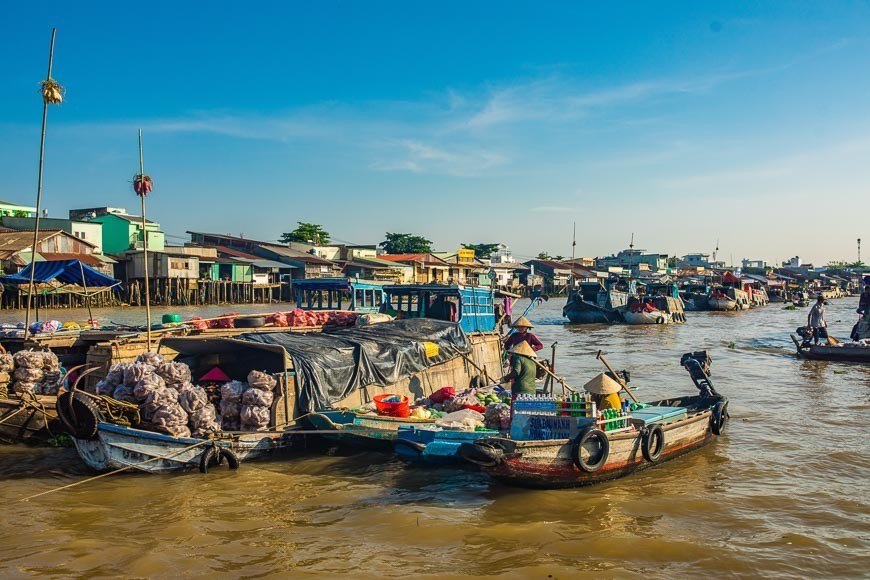8 millions doses of free Covid-19 vaccine about to transport to Vietnam
| Vietnamese-American share positive beliefs about COVID-19 vaccine | |
| PM: Vietnam wishes to receive COVID-19 vaccine soon | |
| PM: Hanoi, HCM City would impose social distancing |
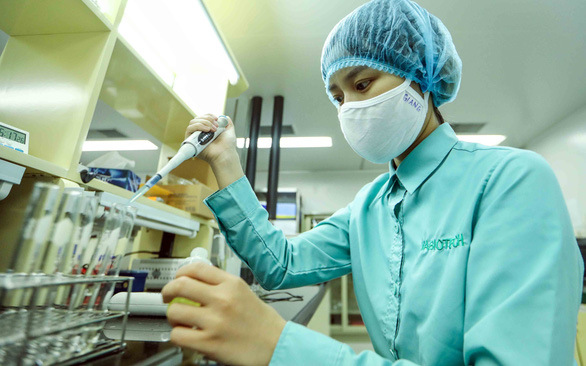 |
| A file photo shows a researcher working at Vabiotech, one of the domestic producers who are working on made-in-Vietnam COVID-19 vaccine. Photo: Nguyen Khanh / Tuoi Tre |
COVAX, which aims at equitable access to COVID-19 vaccines, is led by the Global Alliance for Vaccines and Immunization, the World Health Organization, the Coalition for Epidemic Preparedness Innovations, and others.
The doses are said to arrive in Vietnam in batches from now to the second quarter of this year and will be given for free, according to Tuoi Tre News.
The Ministry of Health has assigned the General Department of Preventive Medicine to draw a plan on using COVID-19 vaccince.
“The first prioritized group to get the vaccination is medical staff members who are participating in combating the pandemic and treating COVID-19 patients,” Nguyen said. “Then, we will move to the next groups.”
In Vietnam, AZD1222 is used to vaccinate people aged 18 to 60.
Earlier, Vietnam also ordered to buy 30 million of doses of AstraZeneca vaccine which are expected to arrive in Vietnam in batches within this quarter.
The vaccination price has yet to be revealved.
Besides the imported vaccine, four domestic manufacturers are currently researching and developing namde-in-Vietnam COVID-19 vaccine, of which two units are conducting human trial on volunteers.
Vietnam to access its first COVAX coronavirus vaccines
According to the Reuters, Vietnam is expected to get access to the first batch of COVID-19 vaccines within the first quarter under the COVAX coronavirus vaccine sharing scheme, its government said on Friday (Feb 5).
The World Health Organization is working with Vietnam's health ministry over the use of COVAX vaccines in the country, the government said in a statement.
The COVAX vaccine-sharing facility has allocated at least 330 million doses of COVID-19 vaccines for poorer countries and will aim to deliver these and many millions more in the first half of 2021, the Reuters reported.
The health ministry on Jan 30 approved the vaccine from AstraZeneca for domestic inoculations.
The government has said it would buy up to 30 million doses of the AstraZeneca vaccine and the first batch would arrive by the end of March.
Vietnam reported 19 more COVID-19 cases on Friday and said a recent outbreak had expanded to at least 11 cities and provinces.
The outbreak detected on Jan 27 has accounted for about a fifth of Vietnam's total of 1,976 coronavirus cases. It has recorded 35 deaths overall, among the lowest numbers in Asia.
The government on Friday called for food production to be maintained to ensure sufficient supplies "in any circumstances" referring to a possible larger spread of the virus.
What is COVAX?
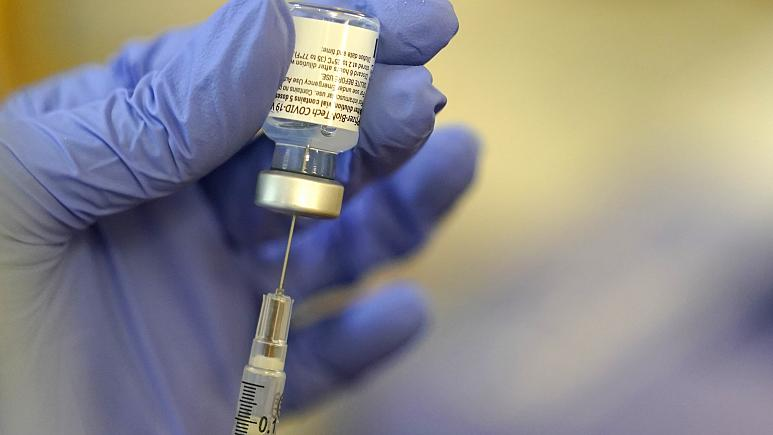 |
| A pharmacist prepares a syringe of the Pfizer-BioNTech COVID-19 vaccine Friday, Jan. 8, 2021. Copyright AP Photo/Ted S. Warren |
The original idea of COVAX was to coordinate purchases globally to ensure poorer countries were not priced out the vaccine race. But, in practice, it functions more like an aid project, experts say, according to Euro News.
The initiative to accelerate access to COVID-19 vaccines was first set up at the end of April 2020 and now plans to distribute more than 330 million vaccine doses to 145 countries in an initial round of distribution by June 2021.
It will cover on average 3.3% of the total population in those countries which range from the rich, such as Canada and New Zealand, who pay for the vaccines, to countries such as Syria and Yemen, who receive them through international donations.
"It took quite a while to set up and because it took so long, [rich] countries didn’t feel confident that it would be a safe way to buy their vaccines from COVAX and they started striking their own bilateral deals to make sure that their populations would have access to the vaccine," said Antoine de Bengy Puyvallée, a political scientist at the University of Oslo.
"Of course that kind of played against COVAX at some point because they were competing for the same doses."
Now, the initiative is months behind rich nations which bought up nearly all of the early doses. The WHO said earlier this month that 90% of COVID vaccines had been given in richer countries.
Many of those countries will have vaccinated much more significant percentages of their populations by June compared to lower-income countries.
COVAX's first contract in August was for the Serum Institute of India (SII) to manufacture vaccine candidates from AstraZeneca and Novavax. But Pfizer and BioNTech, which had their vaccine approved by regulators beforehand, only made an agreement in late January with COVAX to provide 40 million doses, around 3% of what the company aims to produce in 2021.
It's not atypical for how drugs usually come to market, some experts have said, stating that often there are delays getting medicines to low-income countries.
But "it’s a very unique case this idea that actually countries that were able to pay at risk are the ones that today have the vaccines," said Alsalhani at MSF. "Under normal circumstances, the vaccine market doesn’t really work this way."
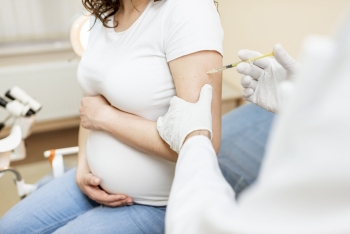 | Should pregnant women get the COVID-19 vaccine? Pregnant women should get vaccinated against COVID-19, top U.S. medical groups said this week, after the World Health Organization put out conflicting advice on their ... |
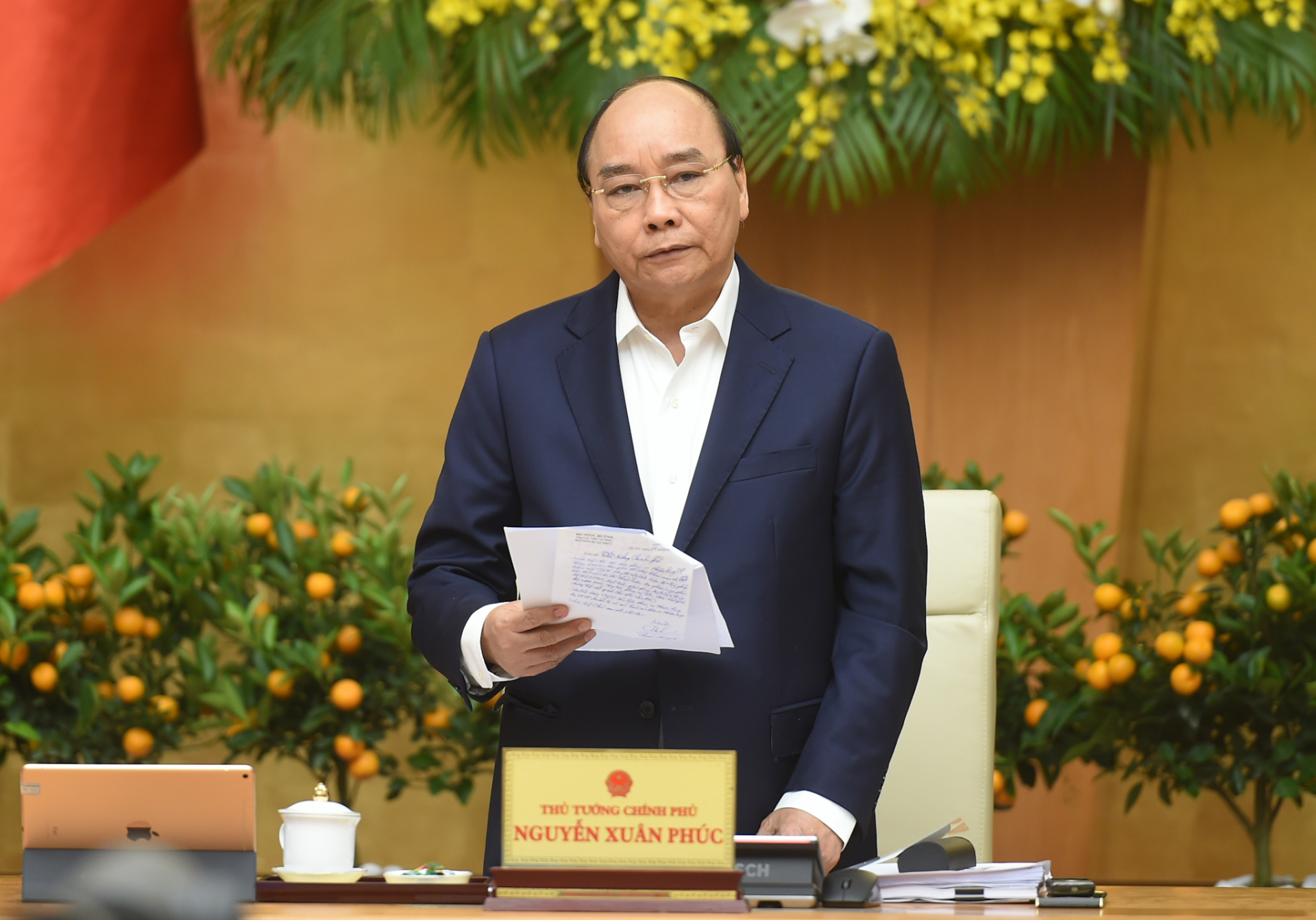 | PM Nguyen Xuan Phuc requests COVID-19 vaccine supply to be ready in first quarter Vietnam's Prime Minister Nguyen Xuan Phuc has requested that relevant agencies take a range of urgent and drastic measures aimed at ensuring the supply of ... |
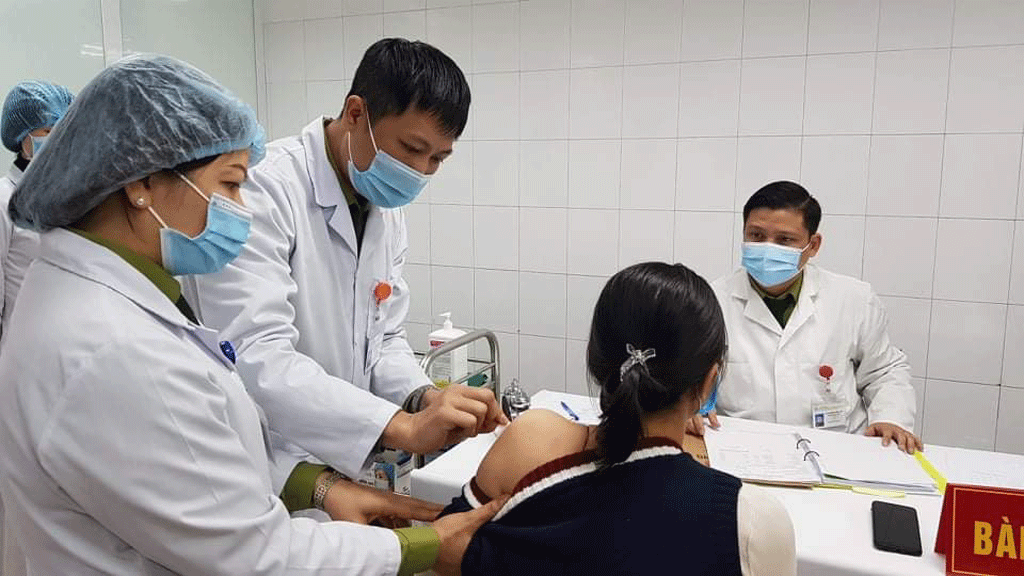 | Covid-19 vaccines officially allowed to be imported into Vietnam Vietnamese Ministry of Health, on Feb 1, officially approved the importation of Covid-19 vaccine into Vietnam. It is expected that 30 million doses will be ... |
Recommended
 National
National
Shangri-La Dialogue 22: Vietnam Highlights Some Issues of Ensuring Stability in a Competitive World
 National
National
Vietnam News Today (Jun. 3): PM Pham Minh Chinh to Attend UN Ocean Conference, Visit Estonia, Sweden
 National
National
Vietnam News Today (Jun. 2): Vietnamese Trade Mission Sounds Out Business Opportunities in United States
 National
National
Vietnam News Today (Jun. 1): Vietnamese, Japanese Firms Foster Partnership
 National
National
Vietnam News Today (May 31): Vietnam Strongly Supports Laos’s National Development
 National
National
Vietnam News Today (May 30): Vietnam, Venezuela Reinforce Ties Through People-to-people Diplomacy
 National
National
Vietnam News Today (May 29): Vietnam and Hungary to Expand Cooperation into New Areas
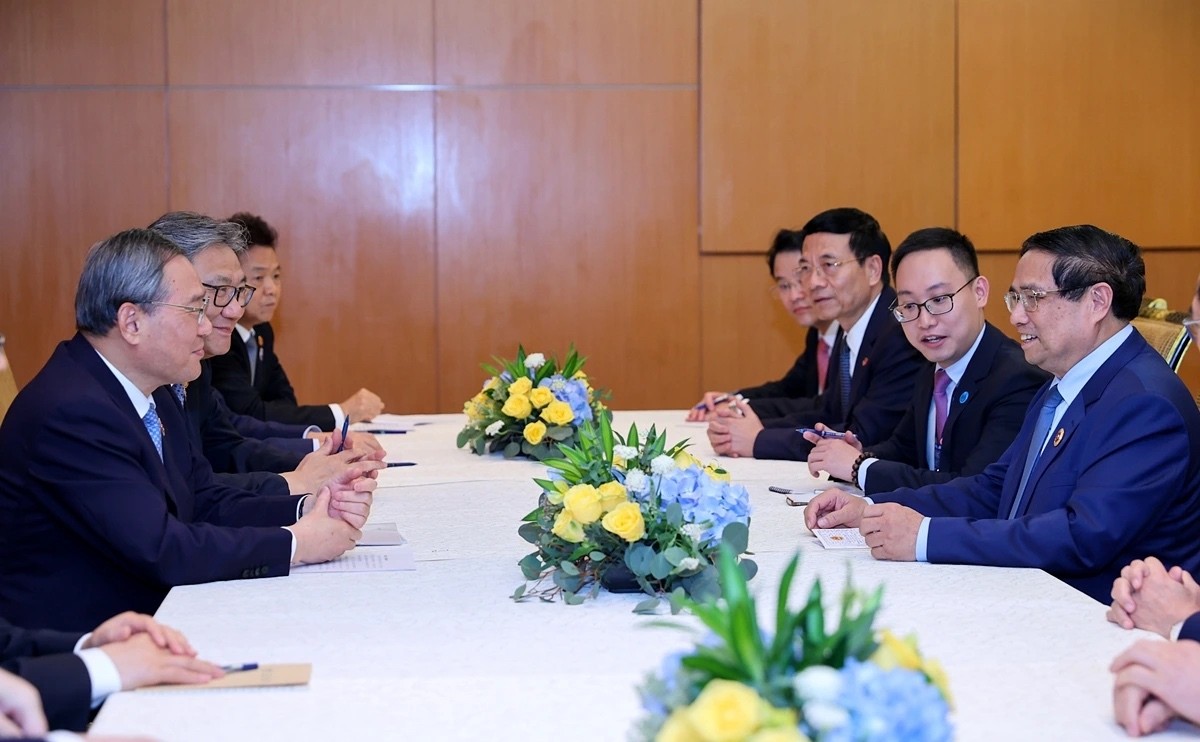 National
National

